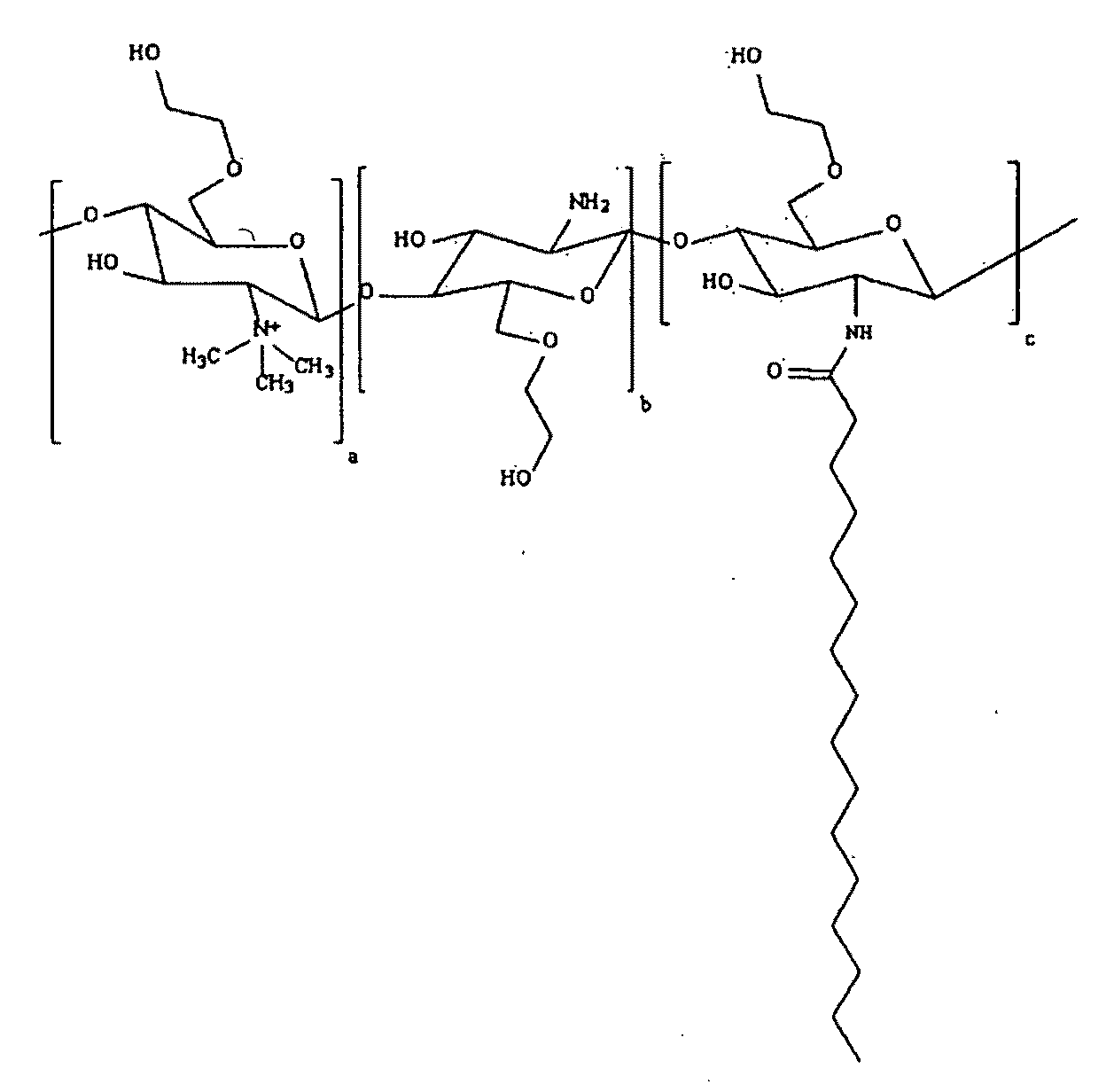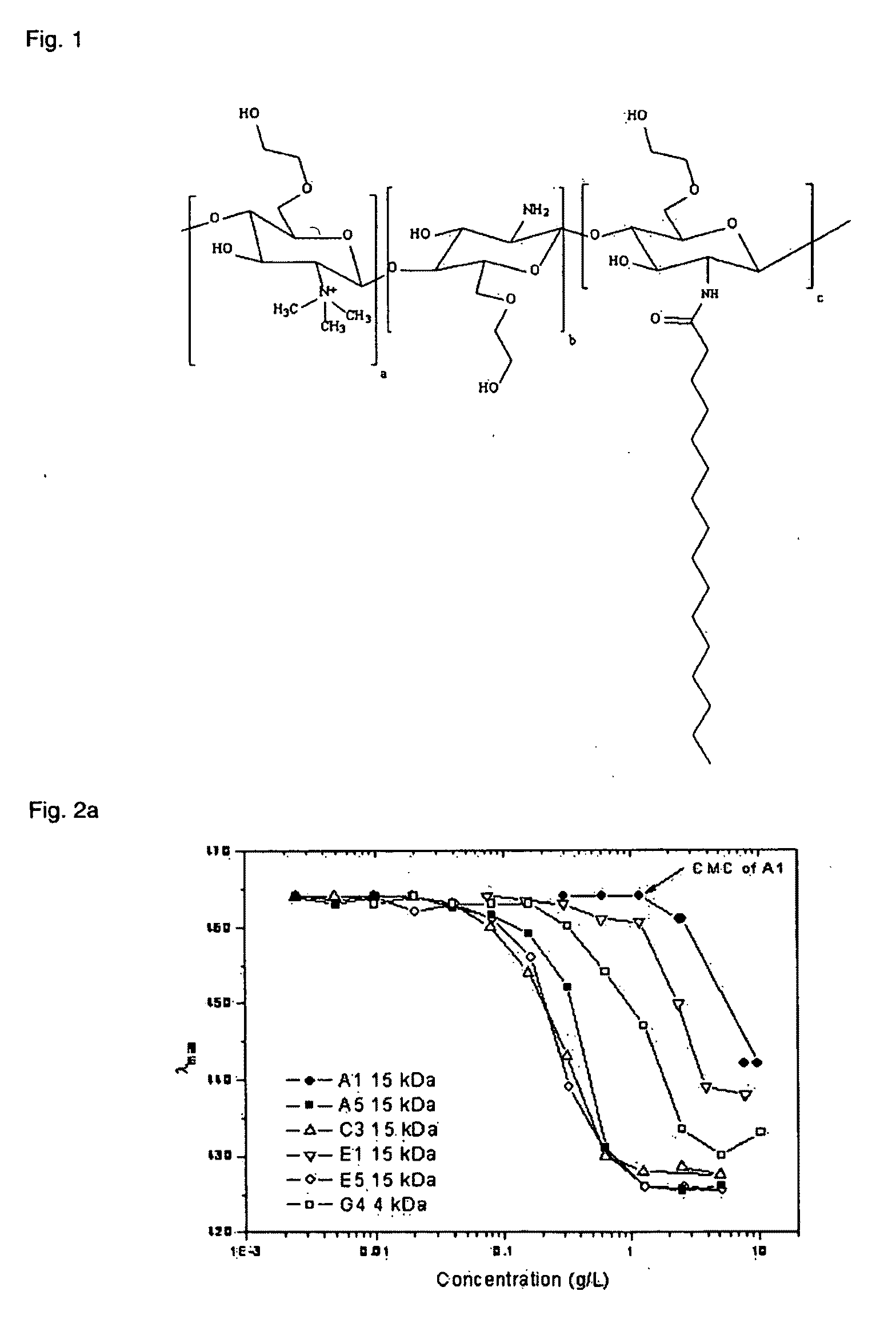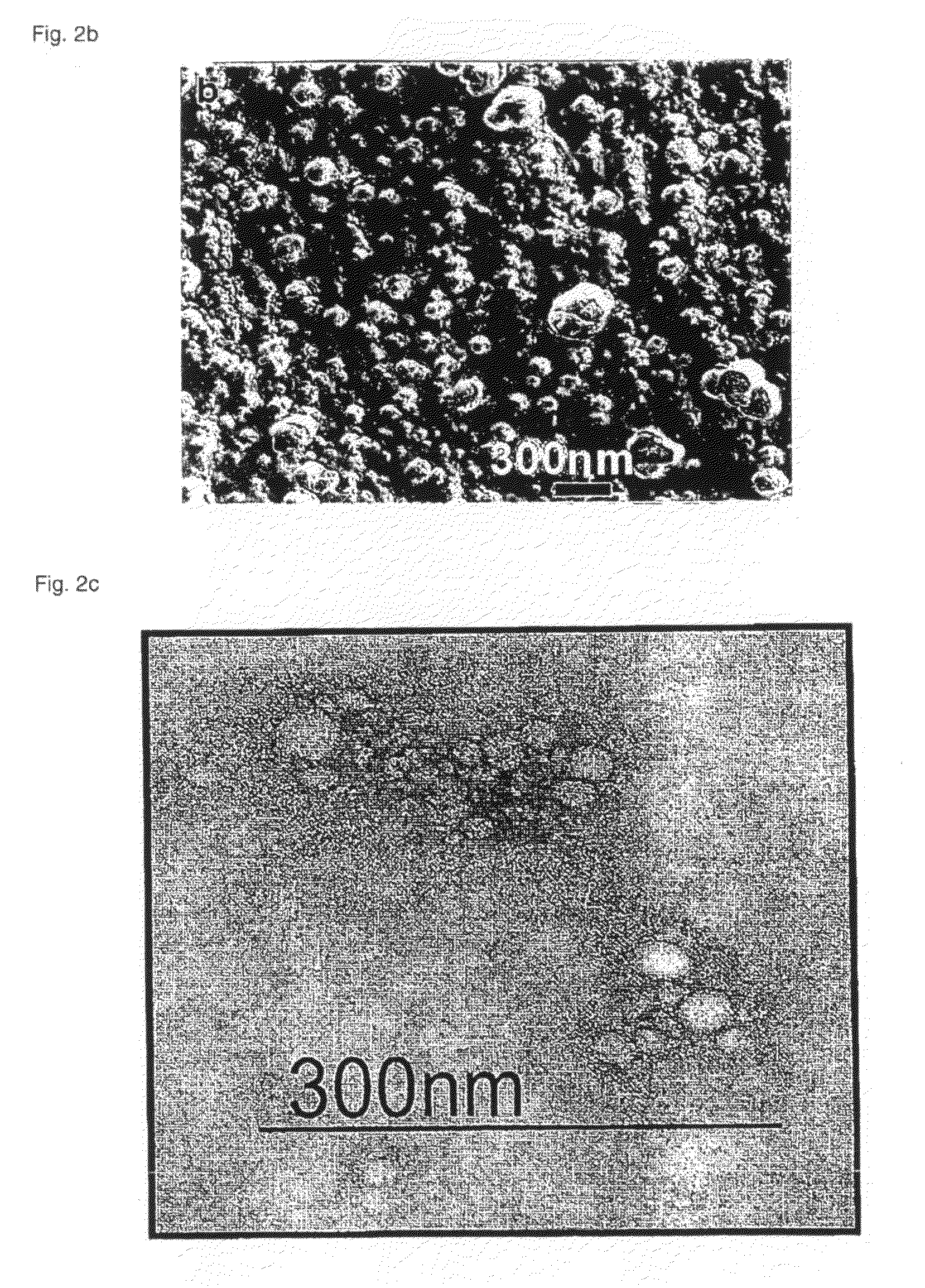Polymeric micellar clusters and their uses in formulating drugs
a mousellar cluster and polymer technology, applied in the field of polymer mousellar clusters, can solve the problems of ineffective hydrophobic drug transfer and failure of drug formulations that are immiscible with water, and achieve the effect of improving the transfer of hydrophobic drugs and poor aqueous solubility
- Summary
- Abstract
- Description
- Claims
- Application Information
AI Technical Summary
Benefits of technology
Problems solved by technology
Method used
Image
Examples
Embodiment Construction
Hydrophobic Drugs
[0054]The micellar polymeric aggregates of the present invention may be used to solubilise drugs and in particular hydrophobic drugs. The term “hydrophobic drug” as used herein includes drugs which are very slightly soluble in water. The definition of “very slightly soluble” is used by the British Pharmacopoeia and is defined as a situation where 1 g of such material requires more than 1,000 millilitres of solvent (e.g. water) to be solubilised or alternatively a material which has a solubility of less than 1.0 mg mL−1 in water.
[0055]Examples of hydrophobic drugs include prednisolone, propofol, cyclosporine, oestradiol, testosterone, drugs with multicyclic ring structures which lack polar groups such as paclitaxel and drugs such as etoposide, amphotericin B, steroids and other multicyclic compounds. Preferred hydrophobic drugs include prednisolone, propofol or cyclosporine. Prednisolone is a synthetic adrenal corticosteroid and is used, for example, as an ocular ant...
PUM
| Property | Measurement | Unit |
|---|---|---|
| Diameter | aaaaa | aaaaa |
| Diameter | aaaaa | aaaaa |
| Particle size | aaaaa | aaaaa |
Abstract
Description
Claims
Application Information
 Login to View More
Login to View More - R&D
- Intellectual Property
- Life Sciences
- Materials
- Tech Scout
- Unparalleled Data Quality
- Higher Quality Content
- 60% Fewer Hallucinations
Browse by: Latest US Patents, China's latest patents, Technical Efficacy Thesaurus, Application Domain, Technology Topic, Popular Technical Reports.
© 2025 PatSnap. All rights reserved.Legal|Privacy policy|Modern Slavery Act Transparency Statement|Sitemap|About US| Contact US: help@patsnap.com



